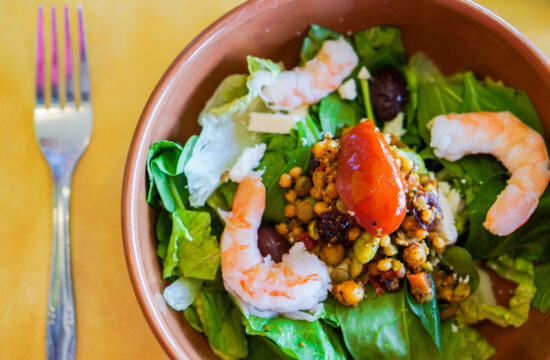Understanding Vegan Nutrition
The Basics of a Vegan Diet
When I first started my vegan journey, I had to really dive into what nutrition meant for this lifestyle. It’s not just about ditching meat and dairy; it’s about finding balance in every bite. A vegan diet primarily consists of fruits, vegetables, grains, nuts, and seeds. Each of these food groups offers unique benefits and vitamins that are crucial for health.
Understanding these components can help you make informed choices about what to put on your plate. For instance, leafy greens are rich in calcium and iron, while nuts provide healthy fats and protein. Each item serves a purpose, so it’s all about creating a beautiful medley of nutrients.
Need a Strong Nutrition Boost for Your Diet? Take a Look...
Don’t forget to consider processed vegan foods too! While they might be convenient, they often lack nutrients and can lead to cravings or overeating as they’re sometimes filled with additives and sugars. Prioritizing whole foods is the key to preventing nutritional deficits.
Key Nutrients to Focus On
Proteins
In my vegan adventure, protein was like that elusive friend who always plays hard to get. But I learned that it’s abundant in places where I least expected! Think legumes, tofu, tempeh, lentils, and quinoa. It’s all about mixing it up and ensuring you’re getting a variety of sources.
One trick I picked up was preparing large batches of beans or lentils to add to meals throughout the week. It saves time and keeps my protein game strong! Plus, I’d toss in nuts or seeds for an extra crunch and a boost of energy during those afternoon slumps.
Make sure you’re also aware of the amino acids your body needs. While most plant proteins are incomplete, you can easily combine them to form complete proteins. For example, pairing rice and beans is not just delicious; it’s also nutritionally smart!
Need a Strong Nutrition Boost for Your Diet? Take a Look...
Supplements to Consider
Vitamin B12
Okay, confession time: I never thought I’d be the person who takes supplements. But then I learned about Vitamin B12, and I quickly changed my tune! B12 is crucial for energy levels and neurological function, and it’s mostly found in animal products. So, for us vegans, it’s important to pay attention to this one.
To ensure I’m not falling short, I’ve incorporated a B12 supplement into my routine. I chat with my dietitian regularly to monitor levels and adjust as needed. Honestly, it gives me peace of mind knowing I’m covering my bases.
But remember, not all supplements are created equal! I found a reputable brand that uses vegan-friendly sources for their B12. Always read labels and choose wisely, folks!
Planning Your Meals
Batch Cooking
Let me tell you, batch cooking changed the entire game for me. At first, meal prep sounded tedious, but once I dove in, it became a lifesaver. I typically set aside a few hours on Sunday to cook up some staples like quinoa, roasted veggies, and legumes. Trust me, your future self will thank you when you can just grab and go!
Good HealthY DIETING Solution is Easier Than Most People Think!
Take a Look for Yourself!
This part of my routine has not only save time during busy weekdays, but it also helps in managing portion sizes and ensures I’m getting a balanced diet. Pro tip: use glass containers to store the meals—better for the planet and easy to reuse!
Sometimes I like to theme my meals for the week. One week could be Mexican-inspired, while the next might be Mediterranean. This keeps things fun and prevents kitchen burnout. Mixing flavors helps keep my taste buds excited!
Listening to Your Body
Mindful Eating
Ah, the art of listening to your body is one that I continuously explore. When I switched to a vegan diet, I realized how important it is to really tune in to how foods made me feel. I even started keeping a food journal to track my energy levels and mood after different meals.
This practice not only helped me to understand which foods fueled me best but also assisted in identifying any possible deficiencies. Sometimes, it’s easy to overlook small signs, like feeling sluggish after a particular meal is a cue that maybe it’s worth swapping for something else next time.
And hey, never hesitate to seek support! Whether it’s friends who’re also on this journey or online vegan communities, sharing experiences can make all the difference. I’ve found a few great forums where we swap recipes and tips, and it’s a lovely little corner of the web!
Frequently Asked Questions
1. Is a vegan diet healthy?
Absolutely! When done right, a vegan diet can be incredibly healthy, packed with nutrients. It requires a bit of knowledge and planning to ensure you get all the necessary vitamins and minerals, but with the right approach, it’s totally doable.
2. How do I get enough protein on a vegan diet?
Get creative with your sources! Incorporate beans, lentils, tofu, tempeh, quinoa, nuts, and seeds into your meals. Combining different plant proteins can also help ensure you’re getting all the amino acids you need!
3. Do I need to take supplements?
While it depends on your individual diet, many vegans may benefit from supplements, especially B12. It’s a good idea to consult with a healthcare professional to understand what might be best for your needs.
4. How can I ensure I’m eating enough nutrients?
Focus on a varied diet rich in whole foods. Make sure to include plenty of fruits, vegetables, whole grains, and legumes. Meal prepping and planning can help in tracking your nutrient intake better!
5. What should I do if I feel sluggish on a vegan diet?
Listen closely to your body! You might be missing some key nutrients – try talking to a healthcare professional about a tailored plan. Keeping a food journal and making adjustments based on how you feel can be really helpful.












